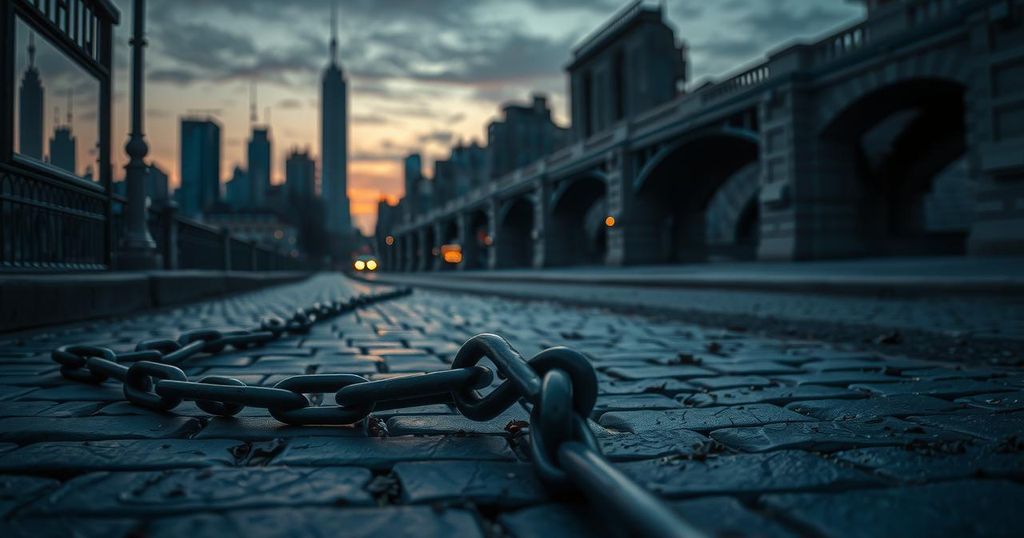Hundreds of Congolese police officers have defected to the M23 rebel group in Bukavu, participating in training under the rebels’ authority. The M23’s capture of territory in eastern DRC raises fears of a larger conflict, prompting the UN to call for a ceasefire. Local sentiments reflect skepticism about the M23’s governance, as tensions rise amidst military pressure from various militia groups.
On Saturday, hundreds of Congolese police officers joined the M23 rebel group in the occupied city of Bukavu. These officers sang and clapped as they prepared for retraining under the authority of the rebels, who appear determined to establish governance in the area. The M23 had advanced into Bukavu a week prior, which had been marred by looting and unrest following the retreat of Congolese forces without resistance.
As fears mount over a wider conflict owing to the M23’s territorial gains and control over valuable mineral resources in eastern Democratic Republic of Congo (DRC), the United Nations Security Council unanimously urged a ceasefire and withdrawal of M23 forces. However, in Bukavu, there were no indications that this call would be followed. The police, now clad in new uniforms and black berets, were advised to undergo training to return and support the rebels.
According to Lawrence Kanyuka, spokesperson for the AFC rebel alliance, approximately 1,800 police officers have defected, with another 500 expected to join them soon. The Congolese government’s stance remains unclear as they did not immediately respond to requests for comment amidst the ongoing tensions with the M23 rebel group, which has been designated as a terrorist organization by the DRC while recognized as an armed group by others.
Local residents have expressed concern regarding the M23’s impact on life in Bukavu, with a resident, Josue Kayeye, noting that the rebels’ presence “has paralyzed the entire life of the whole area.” Congolese troops are also facing pressure from various militia groups, with the town of Minembwe captured recently by a Tutsi militia reported to be allied with the M23. East African defense officials convened in Nairobi to assess the situation, observing a lack of clarity regarding the developments on the ground amid the escalating crisis.
Despite the significant civil unrest, the Congolese government has consistently refused to engage in negotiations with the M23. The group, predominantly comprised of ethnic Tutsis, continues to reject accusations that it acts as a proxy for Rwanda, asserting that such claims are unfounded and centered on the exploitation of eastern Congo’s resources.
The situation in the eastern Democratic Republic of Congo remains volatile as hundreds of police defect to the M23 rebel group amid ongoing unrest. The local population expresses deep concerns regarding the rebels’ actions, which have disrupted daily life significantly. Despite international calls for ceasefire and dialogue, the Congolese government maintains a refusal to negotiate, complicating the path to peace in the region.
Original Source: www.voanews.com






